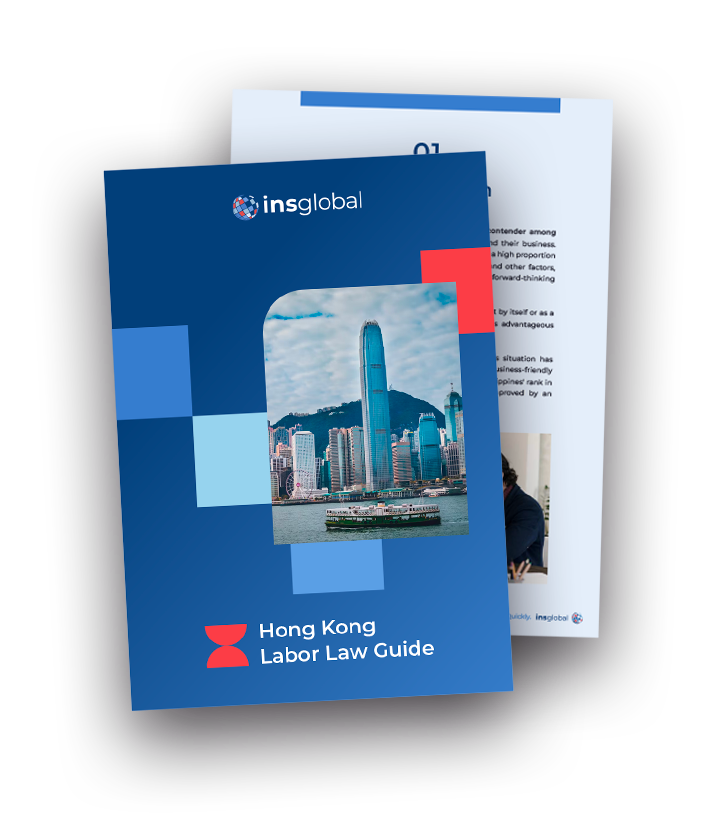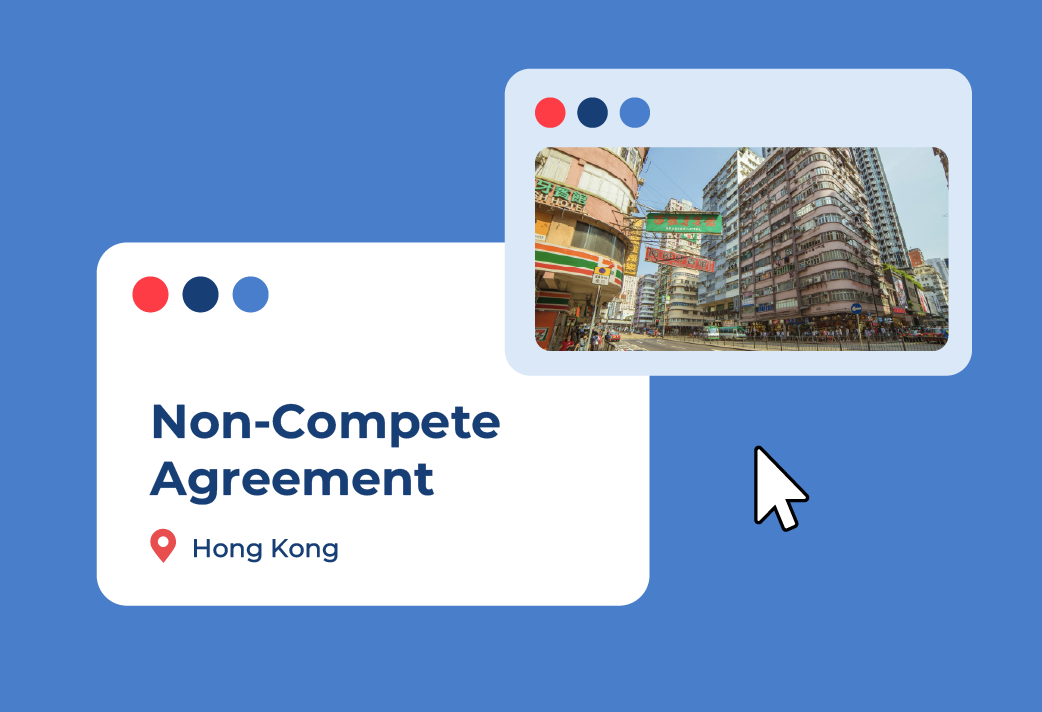Non-Competition clauses, or restrictive covenants, in employment contracts prevent an employee from working in direct competition against that company after the employment contract has ended. Such agreements are very common for senior positions, upper-management roles, and other positions with access to valuable proprietary knowledge and relationships.
Post-termination restrictive covenants are a common practice in Hong Kong. However, Hong Kong courts often rule non-competition clauses as unenforceable on the grounds that they restrict trade and commerce.

Tired of scrolling? Download a PDF version for easier offline reading and sharing with coworkers
In a hurry? Save this article as a PDF
Tired of scrolling? Download a PDF version for easier offline reading and sharing with coworkers.
Fill up the form below 👇🏼
It is important to understand that courts are inclined to rule against the enforceability of a non-competition clause in an employment contract because it may restrict an individual’s freedom of choice of work, which is protected in Hong Kong’s Basic Law (its constitution). Hong Kong courts are most likely to uphold a non-competition clause if the clause is deemed reasonable and is explicit. English Common Law, upon which Hong Kong law is partially based, originally holds all non-competitive clauses unenforceable as against the interest of public policy.
Reasonable Protection of Business Interests
If the non-competition clause exists to protect the company’s business interests from significant harm, a court is more likely to uphold it, assuming that the company can concretely demonstrate the existence of such risks. A court would deem a reasonable agreement one that would exist to prevent the sharing of trade secrets, proprietary technology and valuable relationships, in the event the information is shared, it would cause irreparable material damage to the company. A court will also consider if the company has goodwill in need of protection.
Employee Seniority
If the employee is especially senior and plays a central role within the company, a non-competitive agreement may be more enforceable. Nonetheless, an employee’s seniority, by itself, is unlikely to be sufficient justification for non-compete clause. A company presents this in combination with a demonstration of the risks to the company’s business interests, in the event that the senior employee worked for a direct competitor (or worked for himself, in direct competition with the employer).
Check Our Hong Kong Labor Law Guide
Learn how the Hong Kong law is applied in all aspects and situations, from an employer and employee perspective

Duration of Restraint Period
A court will look at the duration of the restraint period written into the covenant when determining its reasonability. A restraint period that is excessive, given close examination of the circumstances, is less likely to be ruled enforceable. A company should be prepared to justify and demonstrate with concrete evidence that the length of the restraint period written into the clause is no longer than necessary. For example, a company may reasonably claim that a relatively long restraint period is justified by the fact that the employee spent considerable time working with the company’s most valuable technological assets and that, the loss of such assets, could be very harmful to the company.
Geographical Restraint
Non-competitive agreements that cover the entire world are usually deemed too wide. If a company is able to demonstrate how the global nature of the company’s business space necessitates such a provision, a court may be inclined to rule in favor of its enforceability. Hong Kong courts are more willing to rule in favor of non-competitive agreements with limited geographical constraints, as this often increases the ability of the employee finding work elsewhere.
Explicitness of Non-Competition Clause
The justification for the clause and all details of it should be explicit and unambiguous. If it appears that the non-competition clause was tossed into the contract without being completely thought through, the court is unlikely to uphold it.
Writing the Non-Competition Clause
Naturally, a company should aim to write the restrictive covenant in such a way as to maximize the chances of enforceability and mitigate risks to the material interests of the company.
Restraint Period
A company should consider precisely the amount of time needed as justified by the position. A non-competitive agreement rarely exceeds 12 months. In deciding this, consider the following criteria:
- Knowledge of Company Information Positions with a great deal of access to valuable company information will justify longer restraint periods. Such knowledge could include information about the company’s technologies, proprietary management or production methods, sensitive information regarding client accounts, future products and marketing plans. A company should consider the length of time for which the restricted knowledge remains sensitive. For instance, if a marketing executive works to develop marketing plans that are deemed highly sensitive, but after six months or so, such information, if released to a competitor, would not cause significant harm to the company, the restraint period should not exceed six months. If a court sees careful analysis of such risks, and the non-competitive agreement is written accordingly, it will be more likely to hold up the agreement as enforceable.
- Valuable Connections If the employee has gained very valuable connections and relationships by virtue of working with the company, writing a longer non-compete period may be justifiable. Similar to the above information, an employer should be prepared to show the risks for the company.
- Risks to Company A company should consider the following: If the information that the employee has access to were shared, how harmful would it be to the material interests of the company? Greater harm justifies a longer restraint period.
Compensation
Scope
The scope of a non-competitive agreement should not exceed that which is justifiable based on the specific interest of the company seeking protection of its interests.
Updating a Non-competition Clause
How INS Global Can Help You
Following the necessary labor laws required by Hong Kong can be simplified by working with an experience PEO provider like INS Global.

SHARE